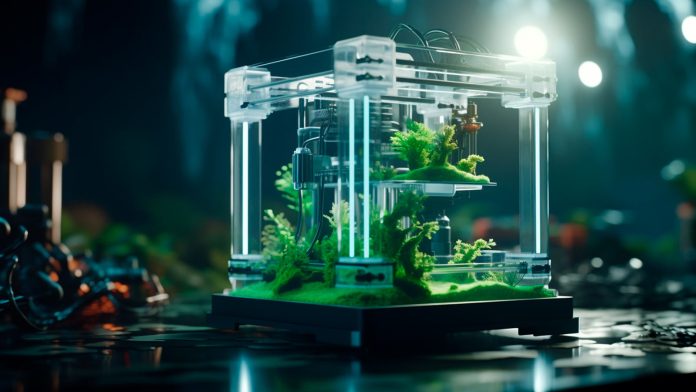The future will see a shift towards miniaturization and decentralization, with millions of power-efficient IoT devices expanding computing and sensing capabilities to new places, including small underwater robots. However, sustainability must also be considered. What happens to these machines at the end of their lifespan?
A team of scientists at Carnegie Mellon University in the USA has made a breakthrough by developing soft robots that are technologically advanced and environmentally friendly. By using seaweed derivatives, these robots are biodegradable, offering a more sustainable future. This article delves into this scientific achievement and its potential for creating a greener and more sustainable world.
This article covers:
Seaweed-based biorobots
Traditionally, soft robots have been made from synthetic polymers, rubbers, and plastics, posing environmental risks. The team of scientists focused on creating biodegradable robots using calcium alginate from brown seaweed. This material is injected into hydrogels, which serve as scaffolding for 3D printing robot parts.
The initial prototypes include a two-finger gripper for object manipulation. These robot parts are incredibly soft and edible, ensuring they can be lost in the marine environment without pollution risks. The next step is developing biodegradable electronics or batteries to create fully biodegradable robots.
Type of soft robots
Soft robots, inspired by living organisms, offer unique capabilities for interactions with animals and plants. These robots have various applications, including studying marine life without causing harm to delicate creatures like jellyfish. They can be categorized into prosthetics, muscular, edible, climbers, and crawlers based on their functions.
3D printing with bioinks
The developers used a 3D printing system with bioinks to create the soft robots for marine research. Bioinks are specialized inks for bioprinting living tissues and organs. Effective bioinks are crucial for bioprinting functional tissues and organs, and advancements like the FRESH system have improved precision in bioprinting soft gels.
Biomaterials and 3D printing have transformative potential in fields beyond soft robotics, such as construction. The integration of these technologies is expected to revolutionize various industries.
Source:




